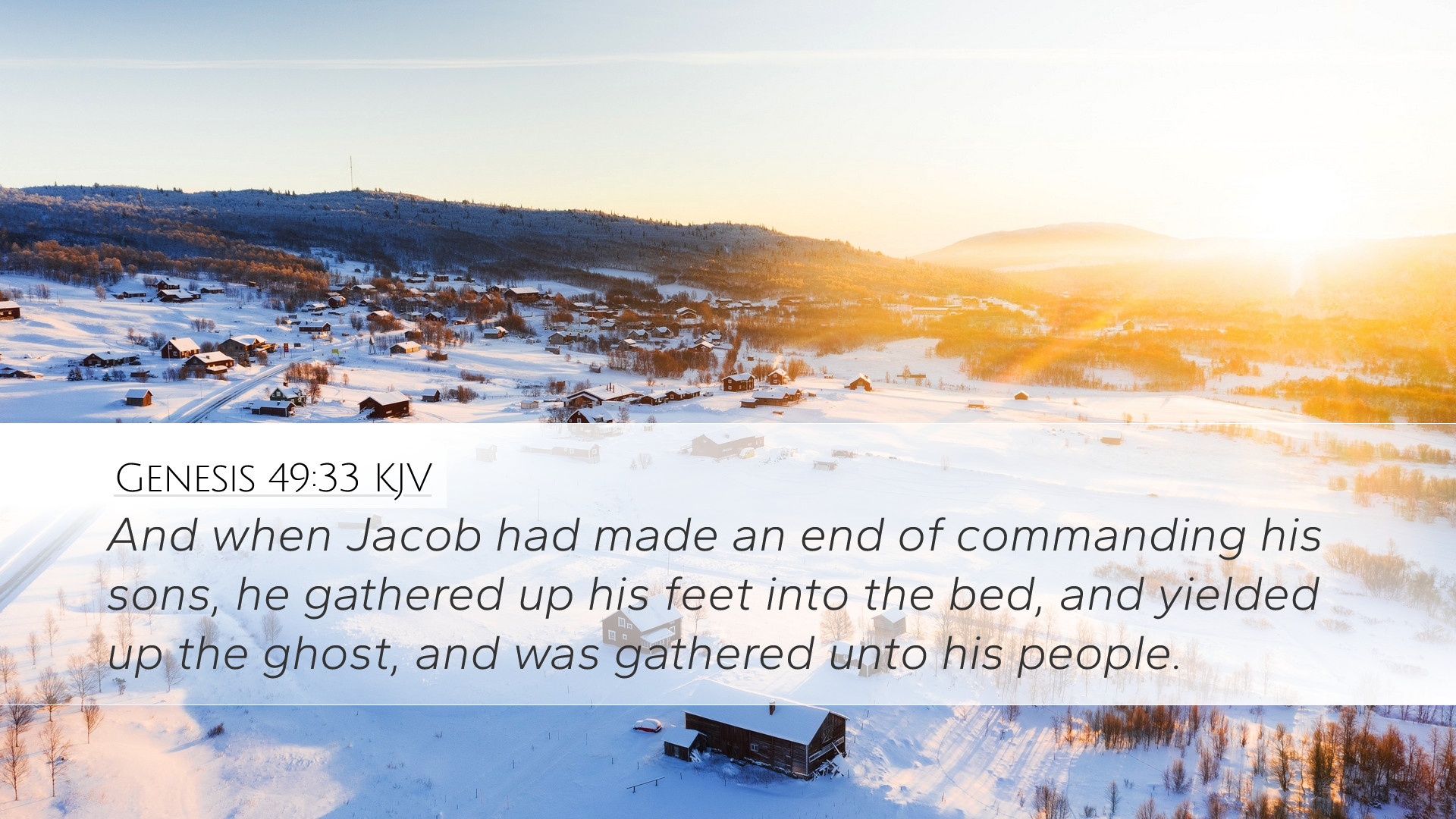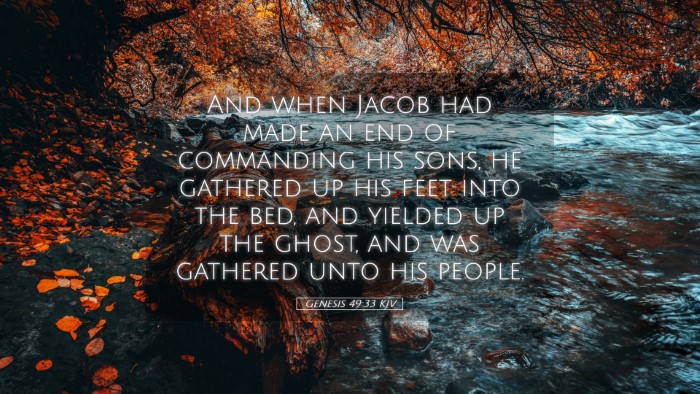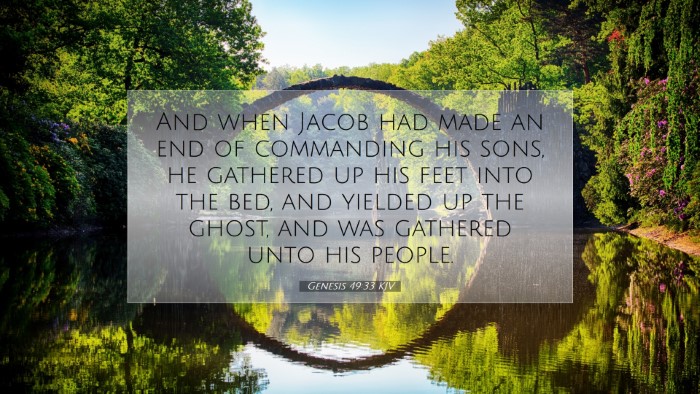Commentary on Genesis 49:33
"And when Jacob had made an end of commanding his sons, he gathered up his feet into the bed, and yielded up the ghost, and was gathered unto his people."
Introduction
The final moments of Jacob's life, as recorded in Genesis 49:33, convey profound theological and moral lessons. This verse serves as the conclusion to Jacob's prophetic blessings upon his twelve sons, providing a practical and spiritual context for understanding the significance of his life and the covenantal legacy he bestows upon his descendants. Renowned commentaries shed light on the depth of this passage, revealing insights that remain relevant for pastors, students, scholars, and theologians today.
Contextual Background
The narrative of Jacob's life is one filled with trials, blessings, and a tumultuous journey towards reconciliation with God and man. Having wrestled with God and experienced profound transformations, Jacob's final words carry weight, reflecting his character and his intimate knowledge of God's promises.
Exegesis of Genesis 49:33
The text opens with Jacob completing his instructions to his sons. This act of giving "command" signifies more than mere parental advice; it represents a covenantal pronouncement loaded with prophetic significance regarding the future of the tribes of Israel. The phrase "yielded up the ghost" denotes his passing—a transition from earthly existence to a promised spiritual resting place.
Matthew Henry’s Perspective
Henry emphasizes the solemnity of Jacob's concluding moments. He remarks that Jacob's death was an outcome of both natural processes and God's will, indicating that despite the physical decline, spiritual matters take precedence in life’s final hours. Henry points out the significance of Jacob "gathering up his feet into the bed," suggesting a peaceful acceptance of death, and illustrates how this act symbolizes a lingering hope in God’s covenant. This is a moment where faith transcends fear, demonstrating Jacob's assuredness in God’s promises.
Albert Barnes’ Insight
Barnes adds layers to the understanding of Jacob's final commands, interpreting them not only as instructions but also as a final opportunity for Jacob to share his spiritual vision for his sons. He sees the transition as a poignant act of gathering—the physical act of bringing himself into a rest that reflects his spiritual journey. Barnes notes that "gathering to his people" signifies belonging, implying that death is not an end but a continuation of existence among God’s chosen. This reinforces the theme of eternal life that resonates throughout the Scriptures.
Adam Clarke’s Analysis
Clarke provides a detailed examination of the text’s implications for the Israelite community. He interprets Jacob's death as a pivotal moment that culminates the patriarchal narrative while inaugurating an era for the tribes that stem from his lineage. He highlights the importance of "commanding his sons" in the context of maintaining covenant faithfulness. Clarke underscores the idea that death can serve as a moment of inheritance where spiritual legacy continues through faithful obedience to God's directives.
Theological Implications
Genesis 49:33 offers rich theological implications that resonate with themes of faith, covenant, and continuity. The actions of Jacob encapsulate a life of struggle, redemption, and spiritual fidelity, pointing towards the significance of each believer's legacy. The peace surrounding his death advocates for an understanding of mortality that is rooted in faith, inviting reflections on how the faithful approach their end of life.
- Covenantal Significance: Jacob’s commands reflect a deep concern for the spiritual trajectory of his descendants, reminding believers of their responsibility to pass on faith.
- Peaceful Departure: Jacob's transition represents a paradigm of dying well, exhibiting a faith that embraces God's sovereignty even in death.
- Community of Saints: The mention of being “gathered unto his people” reinforces the biblical concept of a community that extends beyond earthly existence, emphasizing the hope of eternal communion.
Conclusion
Genesis 49:33 is not merely a historical account; it is a testament to the profound continuity of God's promise among His people. As pastors, students, and scholars engage with this verse, they are offered an invitation to reflect on their legacies, the teachings they impart, and the hope they cultivate in the face of death. Jacob’s life and death illuminate the importance of faithfulness amid trials and the joy of belonging to God's unfolding story of redemption.
Reflective Questions
- How does Jacob's peaceful acceptance of death challenge modern perceptions of mortality?
- What practical steps can be taken to ensure a faithful legacy is passed to future generations?
- In what ways does the community of faith provide comfort in times of loss?


